Class 9 Exam > Class 9 Notes > Science Class 9 > Important Points: The Fundamental Unit of Life
Important Points: The Fundamental Unit of Life | Science Class 9 PDF Download
| Table of contents |

|
| Introduction to Cells |

|
| Cell Components |

|
| Cell Structures |

|
| Vacuoles |

|
| Cell Division |

|
| Historical Perspective |

|
Introduction to Cells
- Cells are the fundamental organizational units of living organisms.
- Enclosed by a plasma membrane composed of lipids and proteins.
- The plasma membrane regulates the movement of materials in and out of the cell.
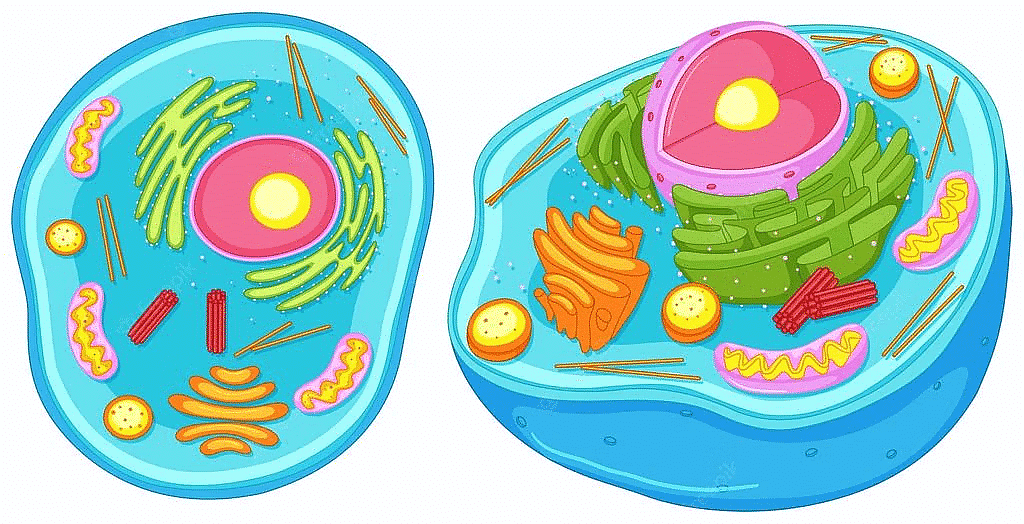
Cell Components
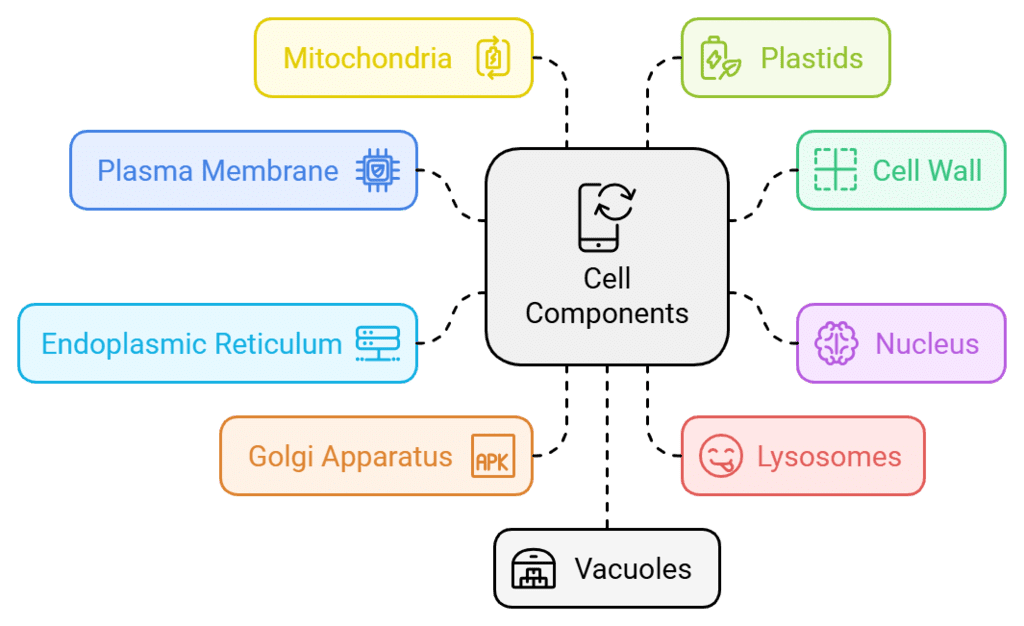
Plasma Membrane:
- Active part of the cell.
- Regulates material movement between the cell interior and the external environment.
Cell Wall (in plant cells):
- Composed mainly of cellulose.
- Provides structural strength and prevents bursting in hypotonic media.
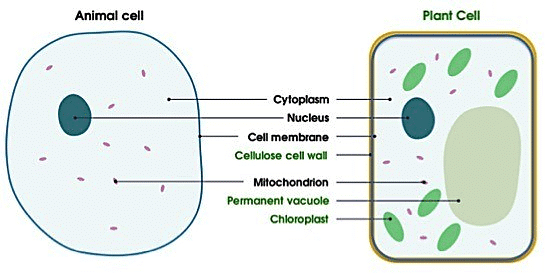
Question for Important Points: The Fundamental Unit of LifeTry yourself: What is the main function of the plasma membrane in a cell?View Solution
Cell Structures
Nucleus
- Separated from the cytoplasm by a double-layered membrane.
- Directs the life processes of the cell.
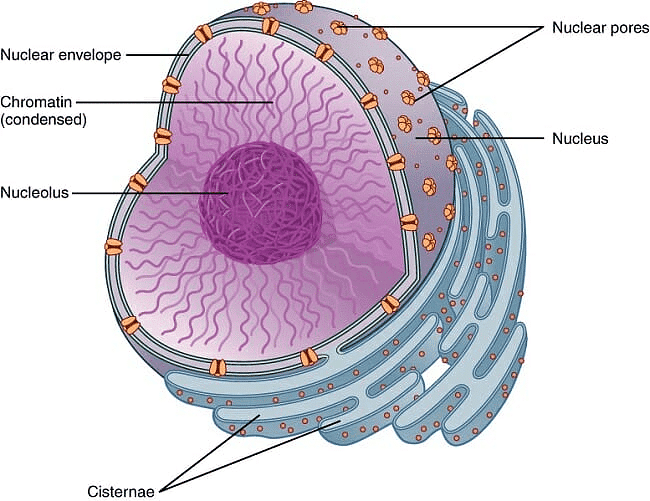 Nucleus
Nucleus
Endoplasmic Reticulum (ER)
- Network of membrane-bound tubes and sheets.
- Rough ER (RER) has ribosomes, while smooth ER (SER) synthesizes lipids.
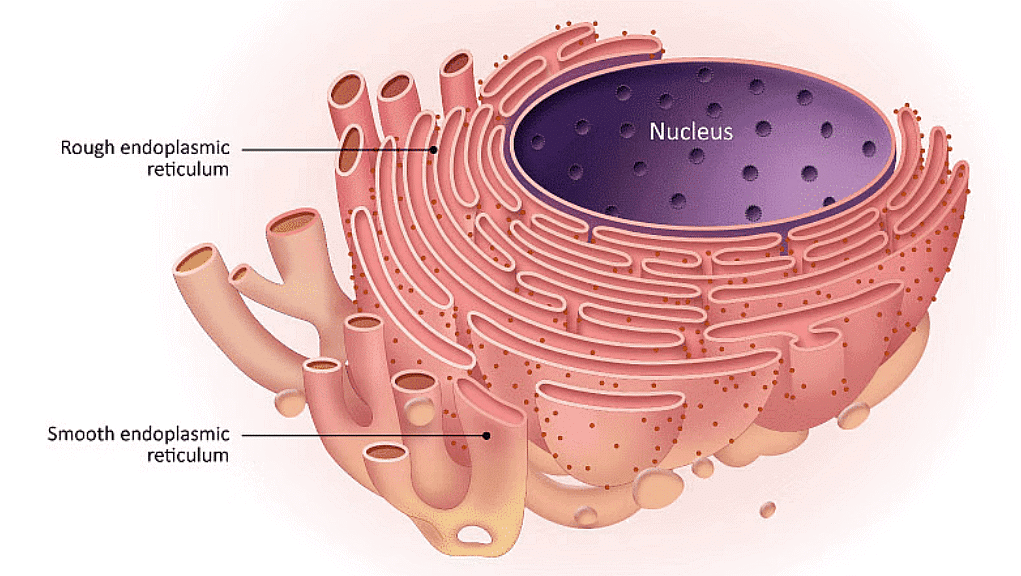 Endoplasmic Reticulum
Endoplasmic Reticulum
Golgi Apparatus
- Consists of stacks of membrane-bound vesicles.
- Modifies, packages, and stores substances manufactured in the cell.
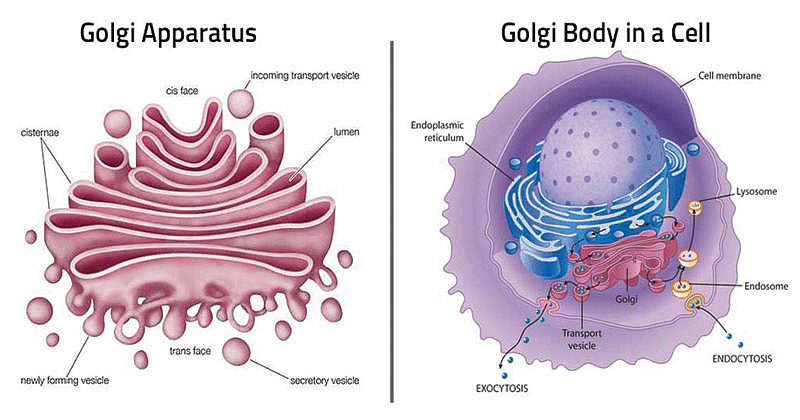 Golgi Apparatus
Golgi Apparatus
Lysosomes
- Membrane-bound sacs with digestive enzymes.
- Involved in waste disposal and digestion of foreign materials.
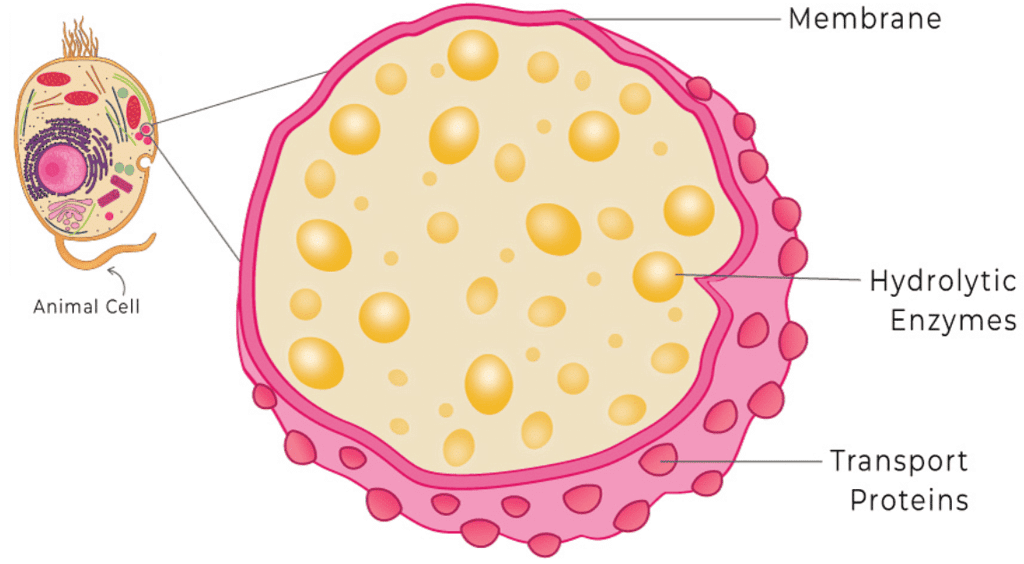 Lysosomes
Lysosomes
Mitochondria
- Powerhouses of the cell.
- Produce energy in the form of ATP through chemical reactions.
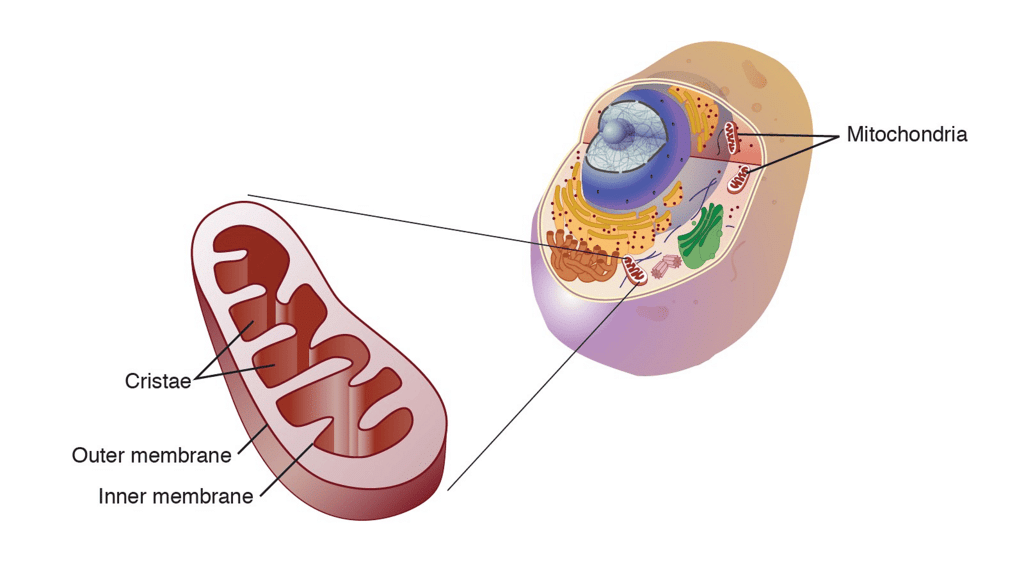 Mitochondria
Mitochondria
Plastids (in plant cells)
- Chromoplasts contain chlorophyll for photosynthesis.
- Leucoplasts store substances like starch, oils, and proteins.
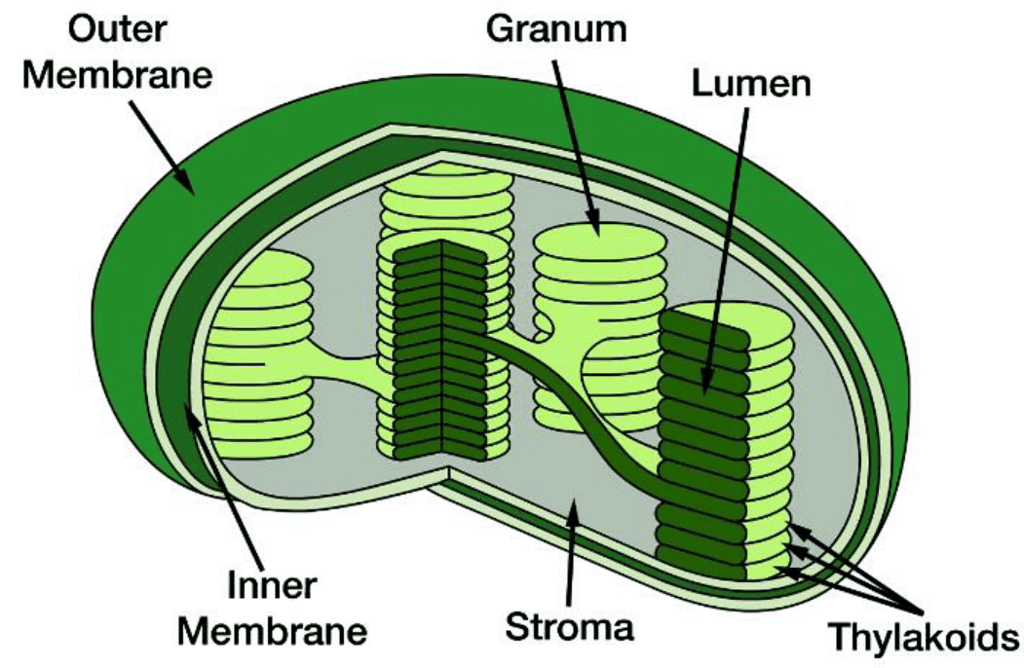 Plastids
Plastids
Vacuoles
- Small in animal cells, and large in plant cells.
- Store cell sap and various substances.
- Provide turgidity and rigidity to plant cells.
 Vacuole in Plant Cell
Vacuole in Plant Cell
Cell Division
Mitosis:
- Process for growth and tissue repair.
- The mother cell divides into two identical daughter cells.
Meiosis:
- Process for forming gametes.
- Involves two consecutive divisions, resulting in four daughter cells with half the chromosome number.
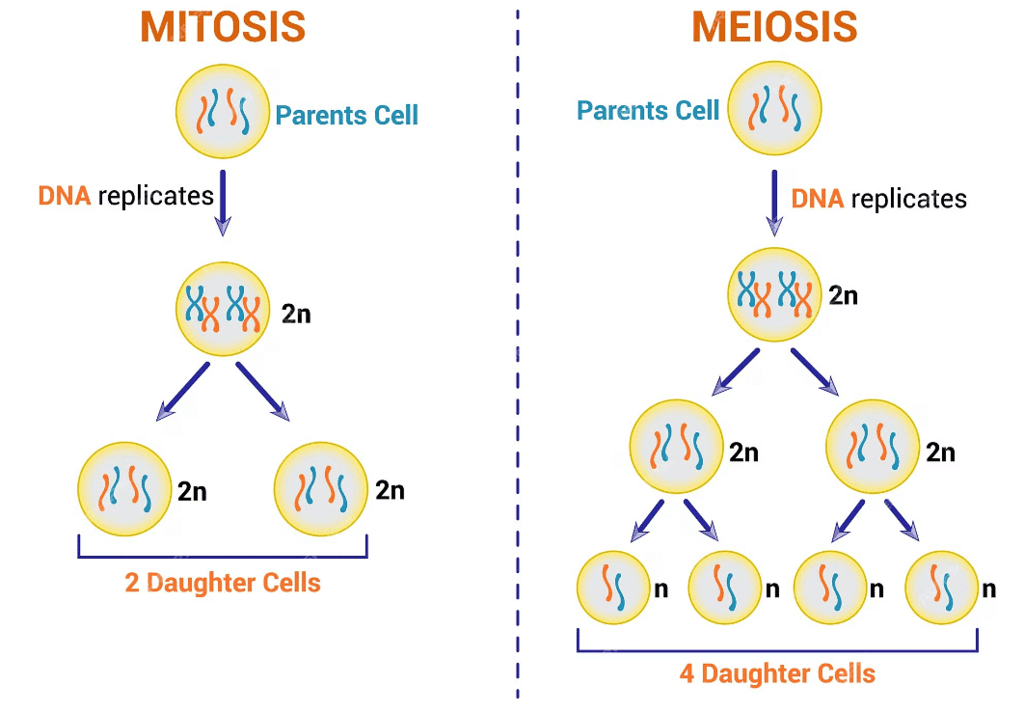
Question for Important Points: The Fundamental Unit of LifeTry yourself: What is the function of the Golgi Apparatus in a cell?View Solution
Historical Perspective
- Cells were first discovered by Robert Hooke in 1665.
- Anton van Leeuwenhoek (1674) observed free-living cells in pond water.
- Robert Brown (1831) discovered the nucleus.
- Cell theory (Schleiden and Schwann, 1838-39) states that all plants and animals are composed of cells.
- Virchow (1855) expanded the cell theory by suggesting that all cells arise from pre-existing cells.
- Electron microscope (1940) allowed the observation of complex cell structures and organelles.
Conclusion
- Cells are the basic structural and functional units of life.
- Different organelles and structures contribute to the diverse functions of cells.
- Cell division is essential for growth, repair, and reproduction.
The document Important Points: The Fundamental Unit of Life | Science Class 9 is a part of the Class 9 Course Science Class 9.
All you need of Class 9 at this link: Class 9
|
84 videos|541 docs|60 tests
|
FAQs on Important Points: The Fundamental Unit of Life - Science Class 9
| 1. What is the fundamental unit of life according to Class 9 biology? |  |
Ans. The fundamental unit of life according to Class 9 biology is a cell.
| 2. What are some important cell components discussed in the article? |  |
Ans. Some important cell components discussed in the article are cell structures, vacuoles, and cell division.
| 3. What is the role of vacuoles in a cell? |  |
Ans. Vacuoles in a cell play a vital role in storing water, nutrients, and waste products, as well as maintaining turgidity in plant cells.
| 4. How is cell division important for the growth and repair of living organisms? |  |
Ans. Cell division is crucial for the growth and repair of living organisms as it allows for the production of new cells to replace old or damaged ones.
| 5. Why is it important to understand the historical perspective of cell biology? |  |
Ans. Understanding the historical perspective of cell biology helps us appreciate the advancements made in the field, leading to our current understanding of the fundamental unit of life.
Related Searches
















